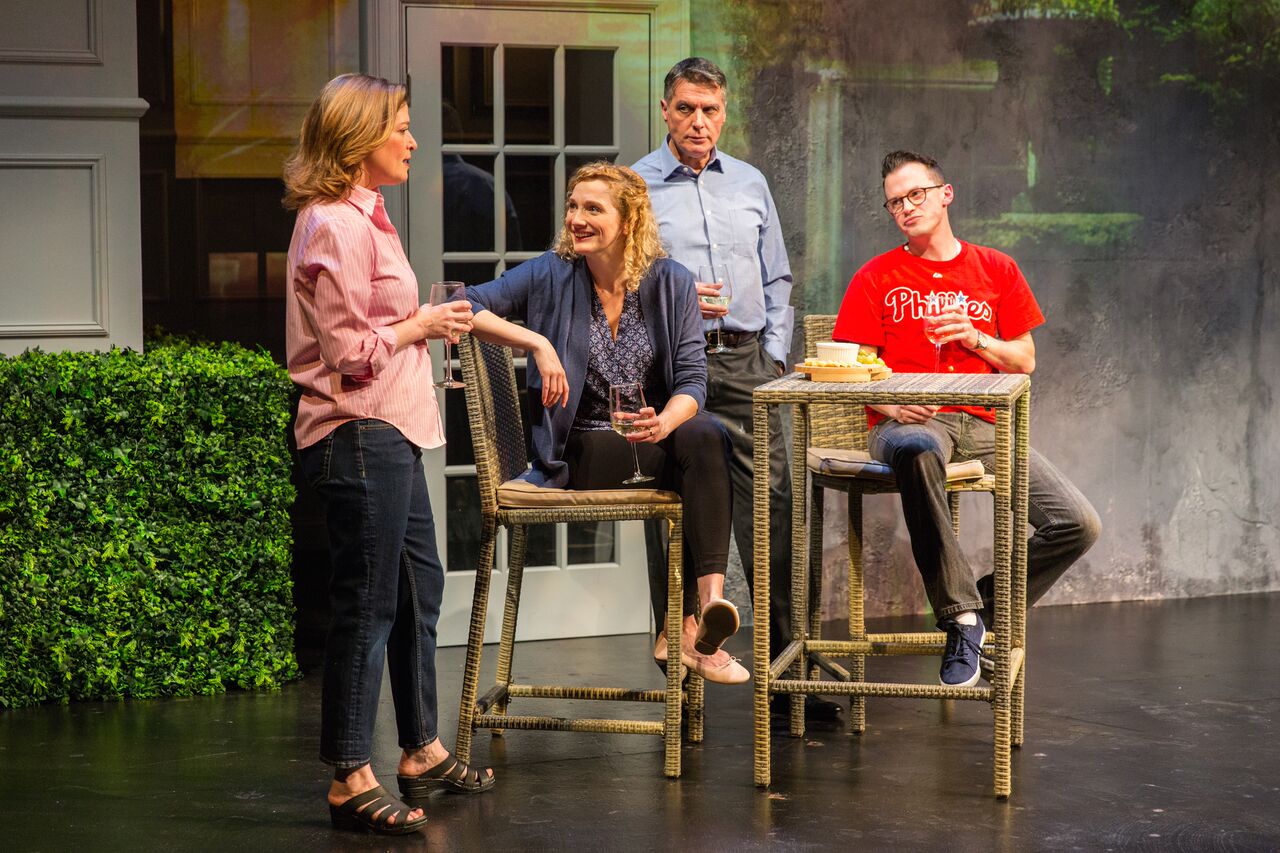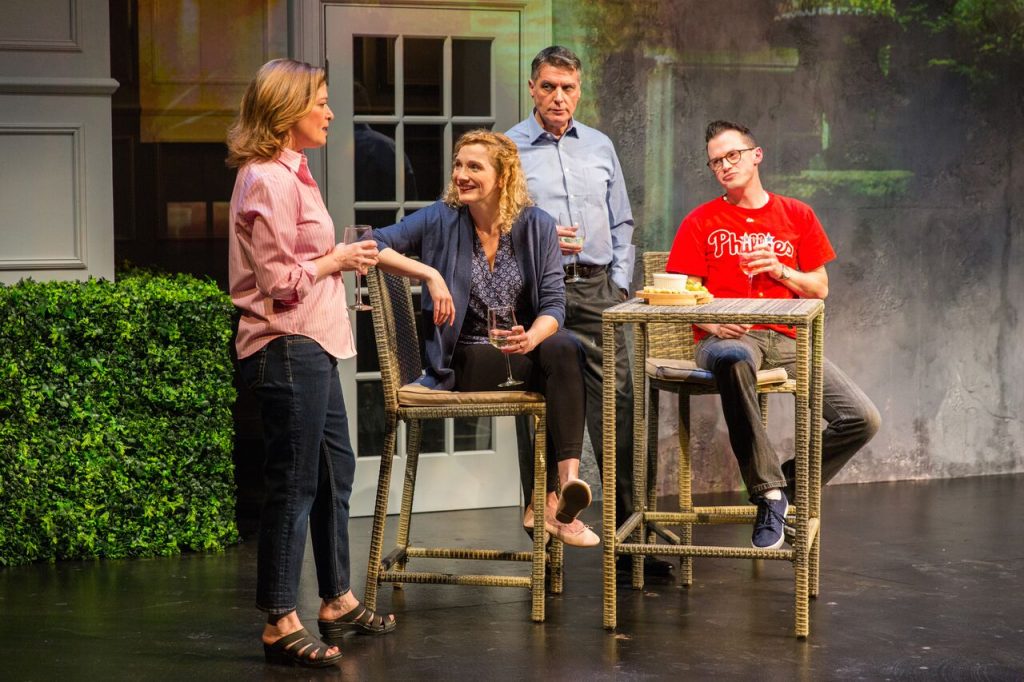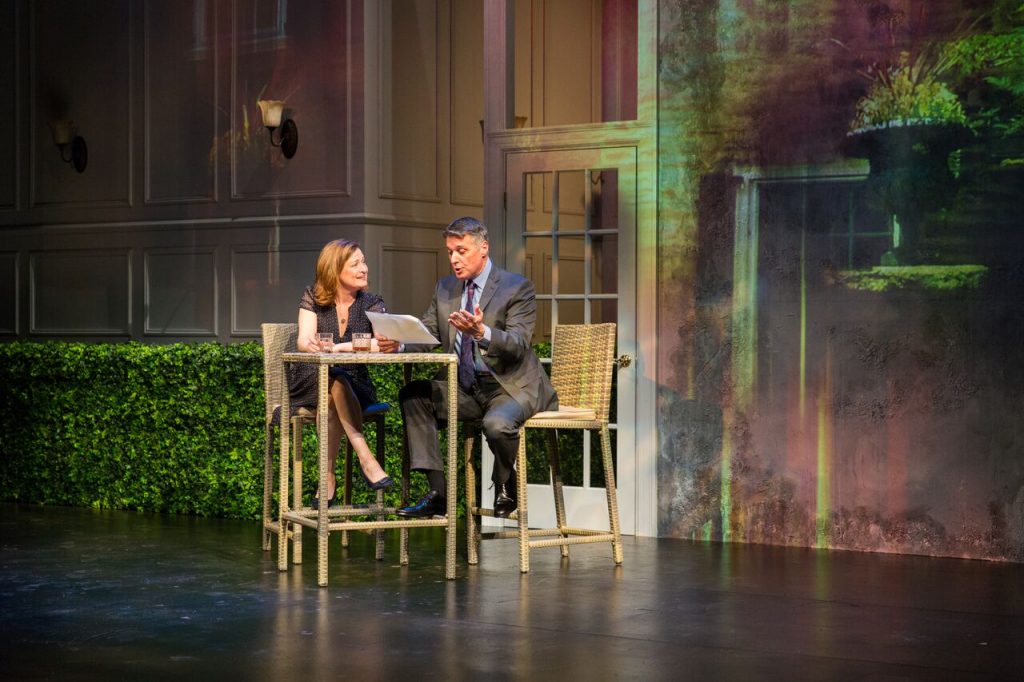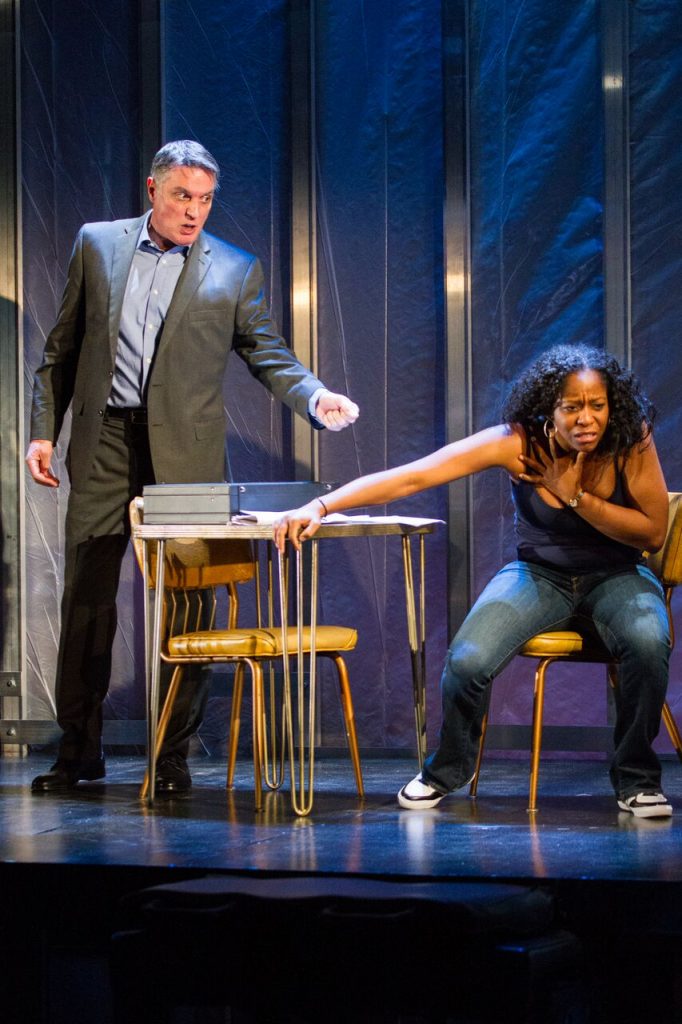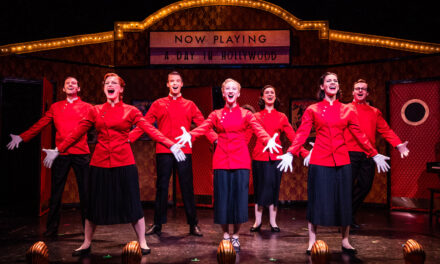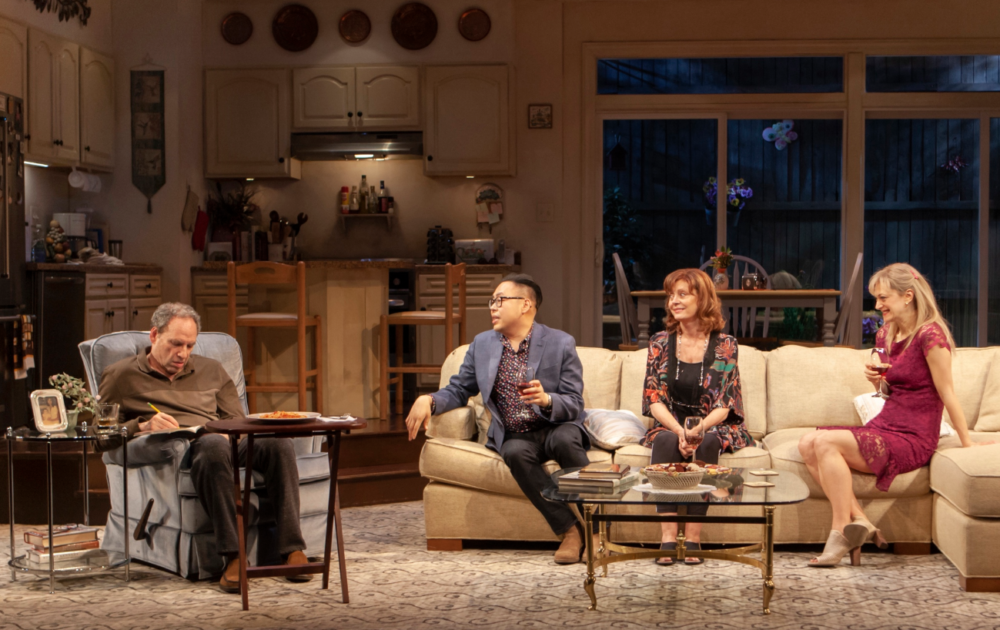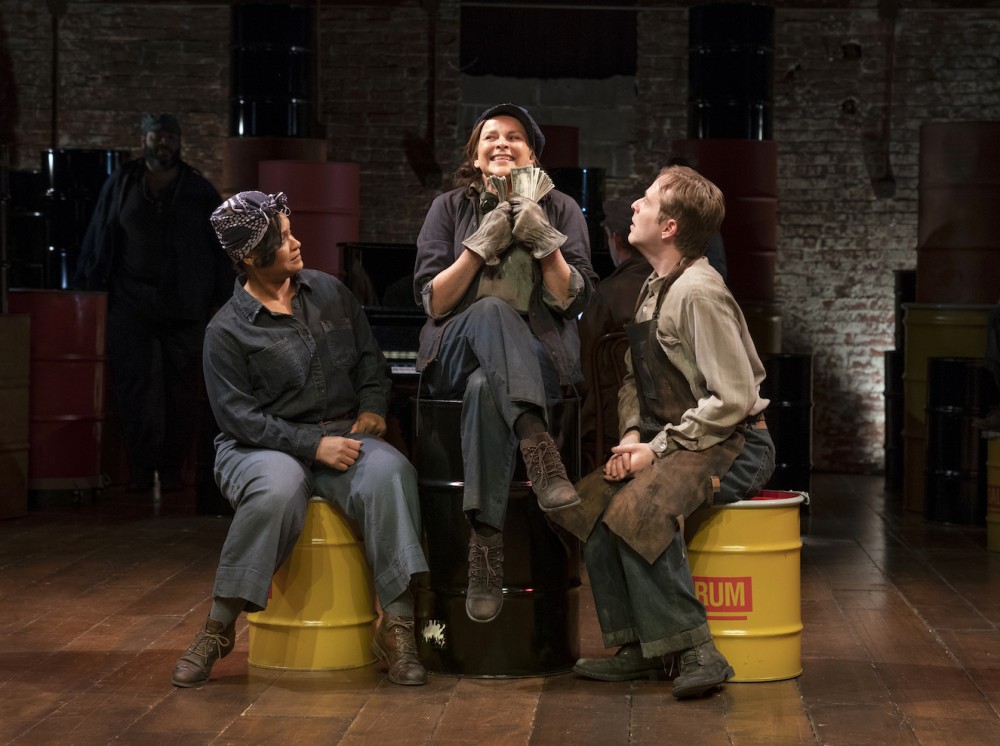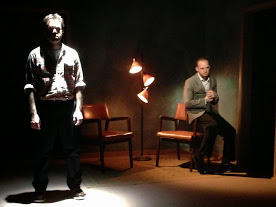By Sandi Durell
Playwright Bruce Graham has tackled the kind of topics many prefer to sweep under the rug, more so, since we’ve become so politically correct as a nation and given the nature of the not unexpected backlash.
When we meet Ray (Robert Cuccioli) a successful financial numbers man – market goes up, we make money. Market goes down – make a few adjustments – we make money. . . and his wife Roz (Susan McKey) a teacher in a ghetto school in the City, it’s obvious they are still in love but Ray has become dissatisfied, angry and bored; he’d like to sell the house in the burbs where they reside and take off . Roz’ day to day is about putting out fires, attempting to teach, and dealing with kids who call her white bitch. She is up for a Teacher of the Year Award. They are joined by their friend Christopher (Jonathan Silver), a young man Ray befriended and mentored since Christopher was 4 years old, and is now trying to bring into his firm, albeit Christopher is hot on finishing his PhD. in marketing with a social objective – “Male African-American Images in Television Advertising.” His new wife Molly (Jessica Bedford), a guidance counselor at a lily white private school in the City, joins them.
The discussion quickly turns into heated argument about the differences in what Roz and Molly experience in their professions as Roz goes on the attack, each extremely vocal in their points of view that take on topics of racism, bias and the social divisions in society. Roz explaining how the 18 Black kids in her class rage against and beat up the 3 Asian kids, and a Principal who couldn’t care less, saying: “What is a melting pot? You throw stuff in and eventually it overheats. Boils over . . .”
As the lights dim and the scene changes, Ray is on a bus sitting next to Shatique (Danielle Lenee) a young black girl in scrubs with whom he strikes up a conversation soon to learn she has a young son living with his grandmother in New Jersey while Shatique works at a hospital in a bad neighborhood in Philly and attends nursing school. She has a brother she visits in prison who is about to be transferred to a permanent penitentiary. The scenes shift back and forth between the house in the burbs and the bus simultaneously and in flashback.
It is at this point, that the barrage of too many times told stories of social injustice, racism and poverty – written by many contemporary playwrights – takes an unusual turn making it obvious that Graham has put a new and unusual spin on this topic.
At first, it’s unclear why Ray appears on this bus in a black neighborhood, without explanation, the conversation between Shatique and Ray going from friendly to resounding with its own racial and biased overtones as we, once again, flashback to Roz, Ray, Molly and Christopher and the women’s continued sparring on the topic of blacks and whites and the racial divide.
It soon becomes very clear that Ray had a purpose when he got on that bus – revenge! Roz had been murdered by one of her students and Ray, who grew up poor and had a brother in prison, learned the ropes and how to play the game. Money and power, both of which he now possessed and uses to avenge the death of his wife, deploying Shatique and her imprisoned brother to meet his end. Spoiler Alert!
This is a very cleverly written play drawing the audience in slowly, then binding us in an intense, unrelenting bombardment of truth and how money, power and privilege positions one in society. It also, unfortunately, speaks harshly and, many times, wisely to how political correctness will not solve the problems of poverty, oppression and prejudice. What it does do, however, is raise awareness with the hope that society will find its answers to these dilemmas that plague our everyday lives and to bring people together.
Robert Cuccioli is powerful as he immerses himself in the role of Ray, morphing from loving to revengeful. Susan McKey is well chosen as the optimistic yet realistic teacher; Jonathan Silver plays sweet as the young man trounced by his idealistic dream in a biased world; and Danielle Lenee is outstanding as a young woman dealing with the realities of prejudice and a hard life.
They are all brought together under the guiding hand of Bud Martin who directs this cast with vision. The sparse scenery works well, split up as the back of an upscale suburban home to a small apartment to the bus, designed by Paul Tate DePoo III; the projection design of a stock market wall washing over the set, by Nicholas Hussong, is enhanced with lighting design by Rob Denton. The modern day costumes are by Wade Laboissonniere.
Photos: Matt Urban/Mobius New Media Inc.
White Guy on a Bus, produced by Delaware Theatre Company, 59e59 Theaters, thru April 16 – runs two hours with intermission.


